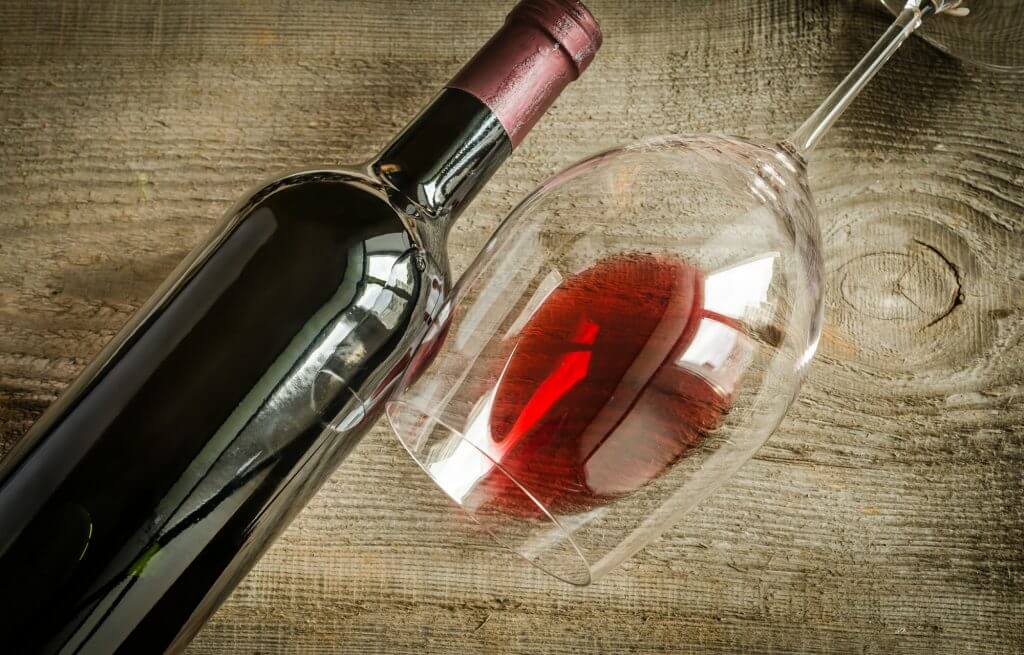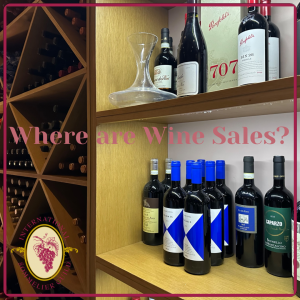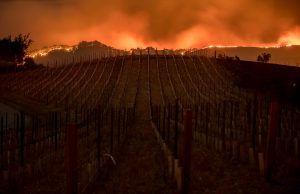The British wine industry focusses on four regions, English wine, Scottish wine, Welsh wine, and overall British wine. The UK is at the heart of the global wine industry, it’s the sixth largest wine market across the globe and the second largest trader, contributing over £17 billion to the UK economy. That being said the United Kingdom consumes a vast amount of wine; however, consumption of domestically produced wine only accounts for around 1% with western European and Australasian wine being far more popular.
England
However, possibly due to the effects of global warming, the UK has seen an increase in climate temperature making wine production far more commonplace within the United Kingdom. The warmest of the UK’s climate can be found in southern England in counties such as Kent, Essex, and Sussex. Due to these counties’ warmer climates, they have in turn become the larger produces of British wine, this has only been within the last couple of decades. The vineyards that are seeing increasing success have honed their focus on white and sparkling wines rather than red, more varieties of these can be produced due to the drier and moderately warmer conditions within these counties.
Scotland
In contrast to above Scotland has not seen success for its wine production, 2012 saw Scotland’s first vineyard open, and its first ever home-grown wine tasted in 2015. For clarification, England and Wales have operated vineyards since Roman occupation. The Scottish wine produced in 2015 by Christopher Trotter was not received well by experts considering it “undrinkable.”
The UK’s most northerly grapevine located on the Shetland islands does not lead to wine anymore and is used solely for grapes to be eaten and grape jellies.
Wales
According to the latest Wine Standards Board review, Wales currently has 22 vineyards in operation, these produce over 100,000 bottles of white wine with a small percentage of reds. Wales has a warmer climate than Scotland, but marginally colder than southern England so fall behind on the quantity, and quality according to expert reviews. Though Wales has vineyards dating back to Roman times similar to England and the countries, have walked together for some time. Since the late 1970s vineyard plantations have migrated to the southern end of wales, most likely in an attempt to grow in a remotely warmer climate and since then South Wales has seen the majority of vineyard plantations in Wales.
Grape varieties in the UK
The UK makes use of various grape varieties to produce its wine, with just a few notable types making up the majority. Currently, the most popular varieties include Seyval Blanc which is the most popular of all, Reichensteiner, Müller-Thurgau, and Bacchus; however, the latter two have since declined in popularity despite Müller-Thurgau being one of the first widespread commercial wine grapes to be grown in the UK during the 20th century. As of 2006, just over 5000 hectolitres of red wine were made, with over 20,000 being white, in other words, 75% of UK wine production since 2006 has been white or sparkling wine. As mentioned, there are a great variety of grapes used for white wine in the UK, and others include well known Chardonnay as well as; Madeleine Angevine, Ortega, and Huxelrebe.
UK wine in the 21st century
There are various reasons for an increased demand for local British wines from consumers, from a new generation of carbon footprint awareness seeing a desire for locally sourced wine cutting down on food miles to connecting with the products they buy. Further to this, the UK’s wine image was given a new lease of life when HRH the Duchess of Cornwall became the president of the United Kingdom Vineyards Association in 2011, and in 2012 there was also a boost for English wine during the celebration of the Diamond Jubilee of Queen Elizabeth II.
The problem has been in fulfilling the increased demand for locally sourced wine and the variability of quality has led to an inability to consistently market quality British wines which consumers trust. This is primarily due to the variability in which farmers arable to produce stable quality wine in the conditions they have, it is for example far more accessible to produce steady quality wheat in variable climates in Southern England, but such climates led to fantastic wine production in 2006 but extremely poor in 2008. However, farmers are beginning to understand the cycle on grape quality over time usually seeing 3-4 year rotation.
A summary of a dramatic last 30 years in UK winemaking as seen England and Wales accumulating over 700 vineyards (taking up 6200 acres of space) and over 150 wineries producing internationally award-winning wines of all categories. In 2017 the UK produced nearly 6 million bottles of sparkling, white, rose and red wines.
What’s next?
From the understanding that farmers are beginning to gather, we can probably expect a good product is coming out of the 2019 English vineyard output, not only due to the unusually warm climate that the British Isles have experienced during the first quarter of 2019. However, the expectation would be that unless another unusually warm spell appears in 2020, we should see a more mediocre product. Though due to the far superior profits from wine per acre in the UK, farmers won’t be giving up any time soon.
We can expect production to increase as does popularity for British wines, and polls suggest that rosé and sparkling (as well as a sparkling rosé) will lead the way to the UK’s most famous wines. I would also predict some outstanding quality wines to be produced from 2019 crops, probably a more superior wine than we will see in quite a while. Innovation and educational improvements in this sector should make UK wine an exciting space to watch.







